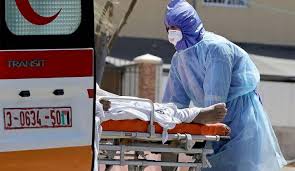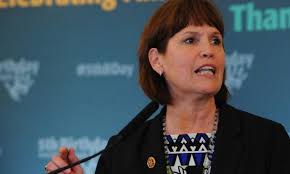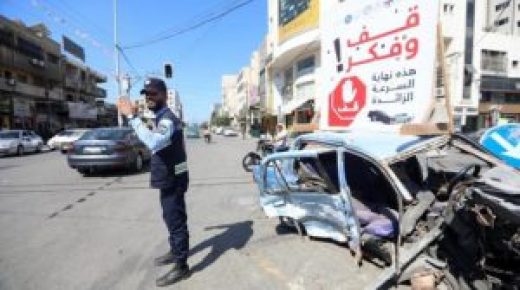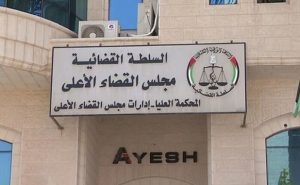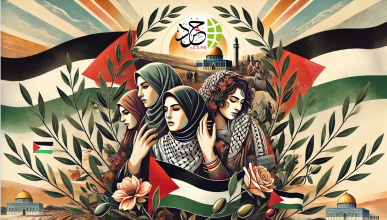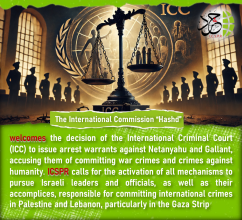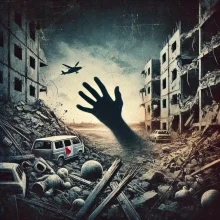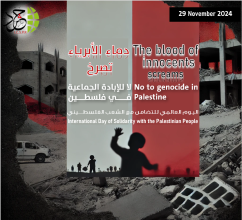
Stress of Adopting Comprehensive National, Human Rights Vision to Support Palestinian Elections: Community
26 Nov., 2019
Stress of Adopting Comprehensive National, Human Rights Vision to Support Palestinian Elections: Community
The International Commission to Support Palestinian Rights (ICSPR) organized on Tuesday, 26, Nov 2019, a workshop entitled: “The Environment of Political and Legal requirements for the success of the general Palestinian elections”. It aimed to present a comprehensive national and human rights vision that supports the efforts of holding the general elections and discussing the requirements of holding them in a fair and transparent atmosphere to respect their results. In a way that reinforces the Palestinian democratic change March.
More than 300 figures from national and Islamic powers, representatives of civil society institutions, dignitaries, Mukhtars, youth activists and community components participated in the workshop.
Dr. Salah Abd Al-Ati, head of (ICSPR), opened the workshop with a minute of silence, mourning the soul of the martyr Sami Abu Diak, and all the martyrs of our people, followed by the national peace anthem. Then, he welcomed the participants in the workshop, referring to the challenges facing the Palestinians, which must be met in the framework of restoring national unity. He stressed that the elections are a human right, especially after the end of the legal periods for the two states of president and the Legislative Council. Moreover, he emphasized that the most correct view is that the elections will come as a result of restoring unity and be comprehensive, synchronized, and given the state of exclusion in reconciliation. Elections have become an urgent necessity to emerge from the current crisis, which is divided and unique in the determination of national choices, and the erosion and collapse of constitutional institutions, which makes it necessary to strengthen the nature of partnership and collective national action regardless of the election results. Calling on all to assume their responsibilities to ensure the success of the election process, he wondered whether we want elections for authority under the umbrella of Oslo agreement that the occupation authorities did not respect, or do we want elections for a parliament and a president under occupation? What are the guarantees for the success of the elections in Jerusalem, the West Bank and Gaza Strip and respecting their results? He called on participants to answer the ways of overcoming the challenges to make the elections to increase the clash with the occupation, and an opportunity to restore unity on the basis of the national partnership.
A member of Hamas political office, Dr. Salah Al-Baradwell confirmed that his movement preferred holding simultaneous “presidential, legislative and national Council” elections, but within the framework of removing obstacles it does not oppose holding elections according to the main law, and its movement does not object to issuing the presidential decree first. The scheduled national meeting will then be held to guarantee the availability of all guarantees for its success, including the neutralization of the constitutional court, the formation of an election court and guarantee the deputies’ rights, confirming the movement’s approval of the complete proportional representation system, provided that it will be held in the occupied city of Jerusalem. He stressed the necessity of agreeing on the bases of political partnership, arranging the internal house and reunifying the national institutions, and in a way that guarantees the representation of all Palestinians. They called for creating climates and guaranteeing freedoms in the West Bank and Gaza, leading to a Palestinian, Arab and international safety network to guarantee fairness, transparency and respect of results.
Fatah Movement leader, who is responsible for the National Relations Committee in Gaza Strip, Dr. Emad Al-Agha assured its full support to holding the Palestinian elections, in the interests of our nation. He was stressing on the Palestinian leadership’s attitude that faced the US president’s resolutions boldly, in order to support the Palestinian people’s decision in self-determination. He emphasized that elections should be a key to hope for the people and what the period of division and its passage, confirming that the leadership works to prepare the international and regional environment for the success of elections. At the end of his speech, he indicated his movement’s attitude toward respecting freedoms and opening a responsible dialog to provide guarantees of success, and stressed the necessity of holding elections in Jerusalem.
Additionally, a member of the Islamic Jihad Movement political Bureau, Khaled Al Batsh, said that his movement prefers to arrange the internal house as a whole starting from the Liberation Organization, agreeing on a national strategy for liberation and struggle, as the current crisis is too deep to be solved by elections, yet its movement will not put any restrictions on holding elections, as it is in accordance with the national agreement. If it wants the elections to come as a result of reconciliation, noting that the priority is to confront the occupation and the national dangers, referring to the necessity of national agreement on a road map through which to overcome what hinders the election process, and Al-Batsh stressed that his movement fears from the occupation steps regarding preventing elections in Jerusalem. Or detaining candidates in West Bank regions, explaining that necessary measures should be taken to face this, especially spreading freedoms and providing the bases of political partnership that can arrange the Palestinian house, including guarantees of success of elections and ending division.
The Palestinian National Initiative: Dr. Ra’ed Yaghi, an official of his movement, saw that there are great dangers in front of the Palestinian cause that need to be stopped by serious factions and civil society and that it is a component of our people, and he referred to the view of the national majority that the priority should be to end the division. Then, resorting to legislative and presidential elections, yet the initiative movement and factions welcomed elections as a right of citizens, a way to restore unity and end division, and to confront occupation . He confirmed that elections, in order to succeed as required, need political will, and to create the political and legal environment necessary for their success. To be held in the West Bank, Jerusalem and the Gaza Strip, and to be held in a series of fixed dates set by the presidential decree, but not more than three months, followed by the completion of the election of the members of the National Assembly, and the agreement to form an election court of judges who are recognized as fair and independent; Ensuring the impartiality of the security services in the West Bank and Gaza Strip, and pledging to provide equal opportunities in the official media, and to provide freedoms.
While Amjad Al-Shawa, director of the Palestinian NGO network, pointed to the importance of holding legislative and presidential elections, and that civil society with removing any obstacles preventing them, which contributes to achieving the political, geographical and legal unity of the homeland, we represented the role of the professional and technical elections committee. He stressed the deep belief of civil society in democracy as a means of changing the current situation, which contributes to ensuring pluralism within the framework of unity, achieving community accountability and confronting the challenges posed by occupation, whether by preventing it in Jerusalem city, detaining candidates and other challenges. He stressed the importance of holding elections on the basis of full proportional representation, within a framework that guarantees overcoming all the blocks, to make elections a tool for change and not for deepening the crisis, calling for the necessity of bringing youth and women to the election lists.
Lawyer Jamil Sarhan, deputy director general of the independent human rights organization, stressed that elections are a human right and a basis for democracy, indicating that they come in a divided and complicated political and legal context, which was better to be the crowning of national reconciliation efforts, which complicate its path and thus look at elections, right now. As a way to overcome the current situation, and while this is important, there are political and legal obstacles that need to be overcome, in the context of transitional justice that allows the past to be put down and national institutions to be rebuilt and to ensure this, it is necessary to agree on providing all guarantees for the success of the general elections. Among them is the agreement on the necessity of forming an independent election court, releasing all political prisoners, providing public freedoms, neutralizing security services, guaranteeing freedom of election propaganda and monitoring the election process, in order to guarantee its integrity while providing guarantees for respecting its results, and this should be according to a national dialog that precedes the election process to provide the requirements for the success of the general elections. Preventing elections from being the gateway to a new conflict may threaten civil peace.
The workshop included discussions and inquiries from participants, ranging from the emphasis on the importance of the elections as a way out of the existing state of incapacity in reconciliation, while providing all guarantees for its success and the need to continue to overcome the obstacles that hinder the elections process, welcoming the flexibility shown by the factions to guarantee the election process. Other views stressed the seriousness of holding elections without a comprehensive national consensus, particularly in the absence of agreement on a national program, agreement on the basis of political partnership, as well as the continued uniqueness of Hamas in the management of the Gaza Strip, and the uniqueness of the President and the Fatah movement in the organization and authority in the West Bank; In the absence of the independence of the judiciary, in addition to the lack of inclusion of the elections for the diaspora Palestinians, in the light of the Palestinian national movement crisis, and the fear that the elections without consensus would constitute an entry point for a new conflict among the political parties, while other views pointed to the importance of building on what has been done, provided that this would be followed by a national meeting.
It is agreed that all concerns regarding guarantees of fair and free elections will be dealt with on the basis of adopting a principle directed to reconstruct national representation on the basis of electing a president and representatives of the Legislative and National Assembly, and making elections a station for launching a workshop for national preparations with the aim of building constitutional institutions, on the basis of partnership, democracy and the protection of pluralism. It is organized within the framework of unity with an electoral environment that ensures the participation of all in the elections, including youth, women and Jerusalemites, while providing guarantees of election monitoring to ensure their integrity and respect for their outcomes, including agreement on the formation of a national unity government regardless of the results.
The participants also recommended the necessity of pressing for holding elections according to an agreement that guarantees making them a way for restoring unity and confronting the occupation plans, guaranteeing holding them in Jerusalem city, protecting candidates, providing a safety net in case of detaining candidates or deputies, guaranteeing the release of public freedoms and human rights, lifting sanctions on Gaza and solving the problem of deputies’ rights. The provision of judicial guarantees to ensure the neutralization of the Constitutional Court, the formation of an election court with independent judges, and the provision of local, Arab and international supervision, to guarantee the fairness and democracy of the electoral process, and the signing of a charter of honor among the factions to ensure the conduct of the elections and respect their results.
It is worth mentioning that the election committee was scheduled to participate in the workshop to inform the participants about its preparations to complete the election process; however, the timing of its meeting with Hamas movement coincided with the date of the workshop, prevented its participation.


